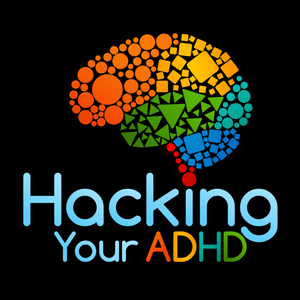Hey Team!
Most of us with ADHD have fallen into the trap of thinking that if we just work a little harder or do a few more things, we'll finally feel like we have our lives under control. But it turns out that "doing" and "leading" are two very different skill sets, and being a world-class "doer" can actually keep you stuck in place. Today, I'm talking with Katy McFee, an executive coach and the founder of Insights to Action. Katy reached the highest levels of corporate leadership before realizing that her success was built on a "doer" mentality that was no longer serving her, especially after her later in life ADHD diagnosis.
In our conversation today, we're looking at why that "doer identity" can be such a common pitfall for ADHD brains and how it can lead to burnout instead of progress. We talk about Katy's journey with a late-in-life diagnosis and how that shift in perspective allowed her to stop masking and start building systems that actually worked for her Combined-Type ADHD. Whether you're running a household, a small business, or a massive department, the way Katy frames the transition from tactical "doing" to strategic "being" is something we can all use.
If you'd life to follow along on the show notes page you can find that at HackingYourADHD.com/273
YouTube: https://tinyurl.com/y835cnrk
Patreon: https://www.patreon.com/HackingYourADHD
This Episode's Top Tips
Recognize when you are trying to "outwork" your ADHD by doing more tasks. We don't always have to be the person doing everything; instead, we can focus on thinking strategically about what needs to be done and focus on doing those most important things.
Give yourself explicit permission to stop pretending you work like a neurotypical person. You can reduce your cognitive load from "faking it" and free up energy for actually doing things the way they work for your brain.
Instead of just using a calendar, use systems that visualize the passage of time and the weight of your commitments. Often time blindness can hit us not only in the moment, but also while were in the planning phase, when we don't realize how much we're really taking on.


